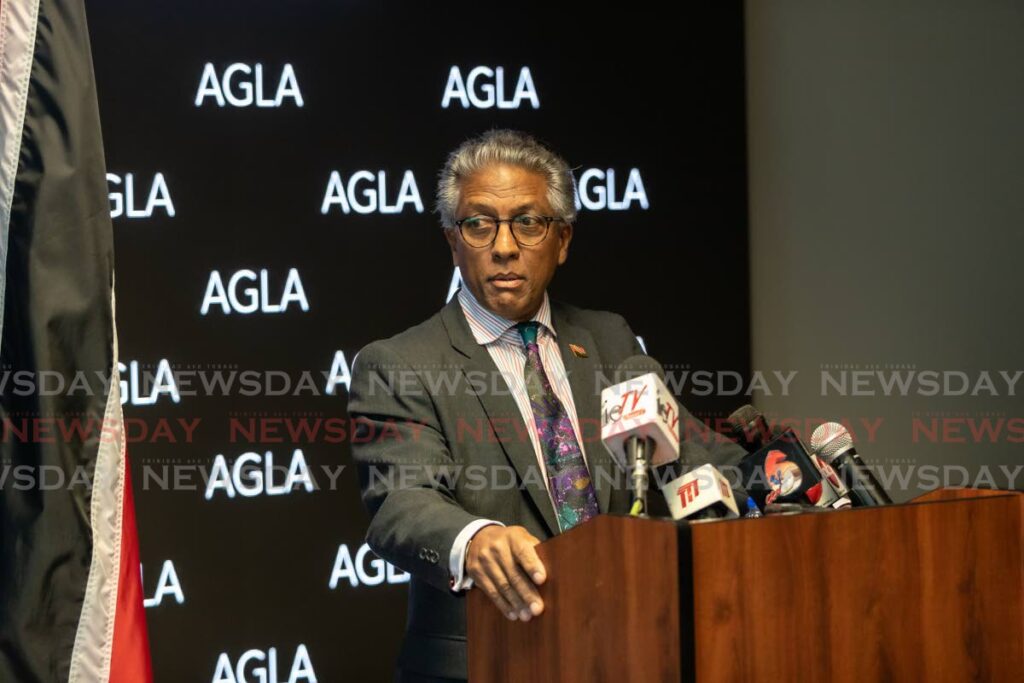Afra Raymond calls on AG for full dislosure on procurement law delays

The nine-day memory is a real thing in today’s world, but some of us do remember and compare, so we are not fooled, not at all.
We are being told by our AG that the new public procurement law cannot be implemented at this time because a significant number of procuring agencies are unprepared, and that is totally unacceptable.
Let me explain.
The Office of Procurement Regulation (OPR) explained that fewer than half the agencies which transact in public money are ready for the new law to come into operation. Those bodies are called procuring agencies, and if the new law were to come into effect they would be unable to lawfully transact in public money.
The penalties prescribed under the new law are heavy and, with only a single exception, all of them carry custodial sentences for the procurement officer of an offending procuring agency. It is not possible to have an offending procuring agency simply pay a fine and carry on regardless.
The OPR has offered a six-month “grace period,” in which no prosecutions will be made, after the act is implemented. That was intended to allow a transition which would include hiring procurement officers, training staff and establishing the appropriate procedures.
So we are being asked to believe that this matter of supposedly high political priority for our PM is being delayed by unprepared state agencies.
At the same time, consider the recent High Court ruling in the unfair dismissal case of former Central Bank governor Jwala Rambaran, in which he was awarded damages for the decision of Finance Minister Colm Imbert. Therefore, it is possible for a minister to dismiss a public servant with whom he is displeased, even one as insulated as the Central Bank governor, with the public paying the damages for a lawsuit, as in that recent case.
Of course, in this public procurement scenario the opposite result would prevail. In this case, a matter of high public urgency and importance is being delayed by civil servants and state enterprises, so why is no one being fired or disciplined? After all, those firings would be for the just cause of failure or refusal to follow a lawful instruction, so no compensation would be payable and we could get on with defending the public interest.
The Government is entirely capable of removing public officials or state enterprise officers with whom it is dissatisfied – just think of the WASA CEO, the HDC MD, the Tourism Board CEO, the previous Central Bank governor and the closure of Education Facilities Company Ltd. So, if the Government really wanted to bring this law into effect now but these inefficient public servants are holding back progress, why not simply dismiss them, as has been done so many times? Sad to say, but this is the behaviour of leaders who think only they went to school...
Could you imagine if our seatbelt law were still awaiting every vehicle to have a set of seatbelts installed? What about if every factory and workshop had to be compliant before the OSHA law were passed in 2004?

But even beyond this comparison, the AG’s additional reasons for delaying are equally incredible. According to the AG, the CJ’s covering letter stated that he was not giving a legal opinion, yet the very first point the AG read from that letter suggested serious concerns over the supposed threat to the separation of powers stemming from the new law. If both of the AG’s assertions about the CJ’s submission are correct, we are witness to something resembling a separation of powers imbroglio, so we urgently need to see that 29-page submission.
The JCC president has called for the CJ’s statement to be retracted. Maybe that statement also needs to be rectified, but I want to see it first!
On June 27, I made a formal request for that exchange of correspondence, which the AG promised to release for consultation with stakeholders, but all I am getting from the Ministry of the AGLA is evasive replies. There is no justification for delaying or refusing to publish the CJ’s submission, so what is the problem?
This is a major decision by our AG, who is seemingly unable or unwilling to open his decision-making process to scrutiny, which would really be a shame if I am correct.
Mr AG, just press “Send” and let us see what you say you considered.
What is at stake?
Here are two recent, big examples -
· Tobago Sandals – in which an MoU, signed by the then Tourism Minister, Ms Shamfa Cudjoe, outlined terms for a large-scale luxurious resort to be built on public property in Tobago, using public money and to the specifications of the Sandals group. That MoU also allowed Sandals duty-free imports, work permits for all its staff and contained an explicit promise that the State would facilitate “transfer pricing.” Transfer pricing is a series of mechanisms to facilitate tax avoidance, to the serious detriment of our collective interests.
· HDC/CGGC public-private partnership – in which a PPP signed by the HDC’s chairman, Newman George, and its then MD, Brent Lyons, would have allowed CGGC (the Chinese contractor) to build 439 new homes on public property for sale to people off the HDC waiting list.
That arrangement was one in which none of the homes were affordable to the low-income people on the HDC waiting list; the contractor had guaranteed exemption from both VAT and corporation tax (!); up to 600 work permits; land provided for workers’ dormitories; 24-hour on-site police guards (!) and finally, all sales were guaranteed by HDC – ie no possibility of losses to the contractor due to lack of demand.
Please note that both those rotten projects were “sole selective,” which means there was no tendering process, and both collapsed as soon as a proper analysis was published – some things just cannot withstand the light of day, like some vampire movie or ole-time folklore or something. In neither case did the government even attempt to make a business case for these huge projects.
Intellectual bankruptcy is the utter inability to defend one’s position, in this case made worse by the fact that all the resources of the State and its allies are at the disposal of our government.
That is what we are fighting against, but the new public procurement system would make all of those types of schemes – yes, I intentionally used that phrasing – much more difficult. This situation begs the question just what kind of leader or system could cook-up such schemes and try to “sign away” our country, time and again.
The collective danger we are facing is that both these appalling and untendered withdrawn schemes were actually entirely legal. Yes, although the public interest would have been seriously damaged by those schemes, there was no law broken. That is the real peril we are in without this new system to control such proposals.
Which explains why there is tremendous hostility to the new procurement system, even after it was significantly weakened by the three sets of amendments this government has inflicted upon it. Sunlight really is the best disinfectant.
The final step is for the Government to accept its responsibility for the state of unpreparedness for this new procurement law. That failure or refusal to prepare is no responsibility of the OPR. The OPR has done its work and the AG’s wily attempt to re-cast this delay as one in which “the AG is awaiting confirmation of this or that from the OPR” has to be rejected entirely.
Afra Raymond is a chartered surveyor, managing director of Raymond & Pierre Ltd and past president of the Joint Consultative Council for the Construction Industry (JCC). This discussion is hosted at afraraymond.net.

Comments
"Afra Raymond calls on AG for full dislosure on procurement law delays"